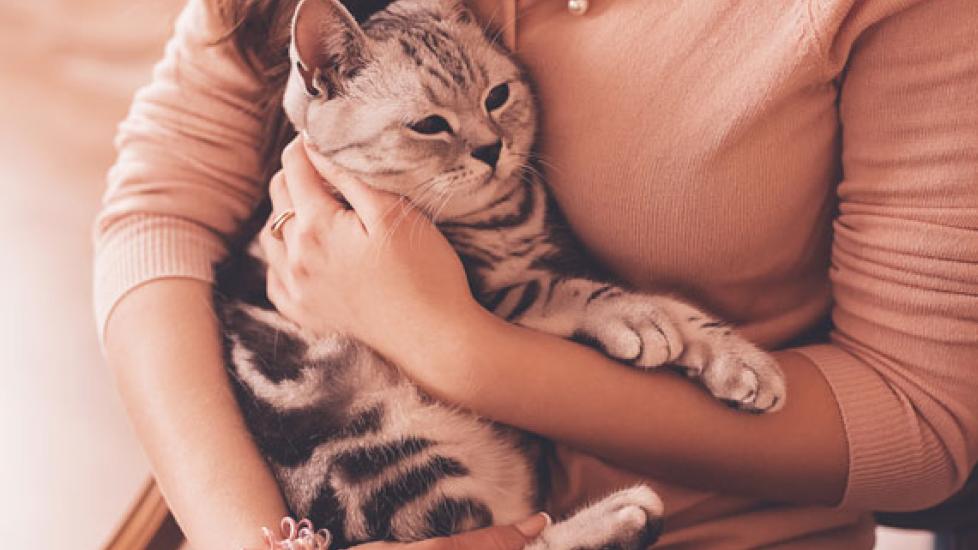Early Signs of Kidney Disease in Cats
Chronic kidney disease (CKD) is a leading cause of death in older cats. The condition is insidious because by the time a diagnosis can be made, kidney function has already declined to at least two-thirds to three-quarters of what is considered normal.
Initially, symptoms are quite mild, but as time goes on affected cats become dehydrated, metabolic waste products build up within the bloodstream, electrolyte abnormalities develop, blood pressure can rise to dangerous levels, and red blood cell production slows. All of this causes some combination of increased thirst and urination, urinary accidents, poor appetite, lethargy, weight loss, abnormal behavior, vomiting, diarrhea or constipation, bad breath, sores in the mouth, unsteadiness, and a ratty looking coat.
Stepping in with treatment when a cat is this sick is certainly helpful (many patients can be stabilized and maintained with fluid therapy, medications, and a special diet), but early diagnosis and treatment should always be our goal. What we need is an easy way to determine which cats are most likely to develop CKD.
A recent study looked at the health records of 1,230 cats seen by primary care veterinarians in an attempt to identify risk factors for CKD. The hope is that with increased awareness of these risk factors, veterinarians can recommend additional screening for those individuals who would most benefit from it. The study found the following:
Risk factors for CKD in cats included thin body condition, prior periodontal disease or cystitis [bladder infection], anesthesia or documented dehydration in the preceding year, being a neutered male (vs spayed female), and living anywhere in the United States other than the northeast.
The difference in the amount of weight lost between the CKD and control cats included in the study was quite remarkable. A thin body condition was noted in 66.3% of cats with CKD, and these individuals experienced a median weight loss of 10.8% in the preceding 6-12 months. In comparison, 38.4% of control cats were identified as having a thin body condition and the median weight loss during the preceding 6-12 months for this group was 2.1%.
The study’s authors make the point of saying that these associations “should be viewed as potential indicators for facilitating earlier recognition and diagnosis of CKD and not necessarily as evidence of a cause-effect relationship between the risk factors and CKD in cats.” For example, we don’t know whether “documented dehydration” is damaging the kidneys leading to CKD or if these cats have as-of-yet undiagnosed CKD, which results in dehydration.
I can see using these findings as a sort of check list during wellness exams in older cats – the more boxes that get ticked off, the greater the need for additional screening in the form of blood chemistry tests and a urinalysis. Treatment can’t cure CKD, but it can slow the progression of the disease and greatly improve quality of life, and the earlier it starts, the better.
Finally, I want to bring up one item that is conspicuously absent from our check list — type of diet. Many veterinarians and cat enthusiasts recommend canned food for cats, in part for its supposed protective effects on the kidneys (due to its high water content). However, this research found that “the study cats with a record of having been fed kibble were no more likely to develop CKD than those fed wet food.” This is hardly the last word on the matter, but it should ease the worries of owners who feed dry cat food.

Dr. Jennifer Coates
Reference
Risk factors associated with the development of chronic kidney disease in cats evaluated at primary care veterinary hospitals. Greene JP, Lefebvre SL, Wang M, Yang M, Lund EM, Polzin DJ. J Am Vet Med Assoc. 2014 Feb 1;244(3):320-7.
Image: Artem and Victoria Popovy / Shutterstock
